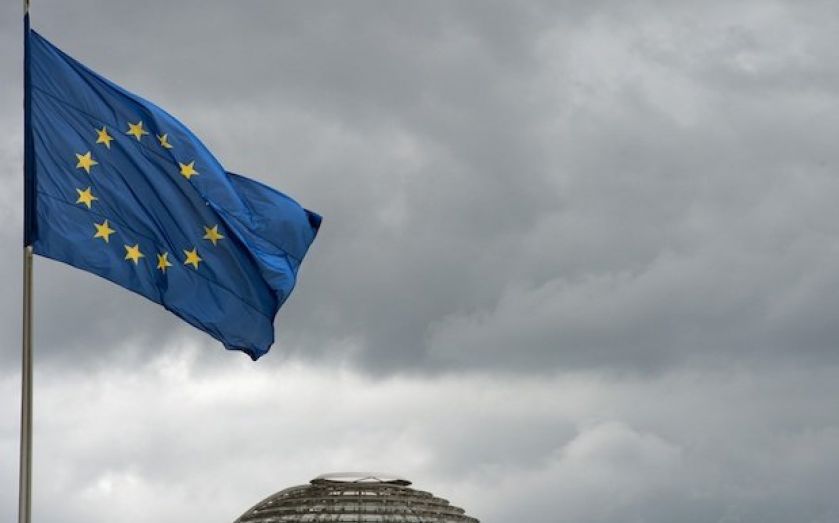We’ve neglected the Commonwealth and Britain’s prosperity has suffered

AN IMPORTANT feature of the modern Commonwealth has become worryingly obscured in UK debates about its significance: intra-Commonwealth trade and investment flows between its 53 member states (about a third of the world’s population) are growing at a huge pace.
Far from being a relic of Britain’s imperial past, today’s Commonwealth connects at least half a dozen of the world’s fastest-growing and most dynamic economies, offering big new consumer markets and generating investment capital from its high saving societies. And more is coming, especially in Africa, where massive hydrocarbon resources are becoming commercially recoverable and transforming the prospects of countries across the continent.
The latest figures suggest that some 20 per cent of world trade now takes place between Commonwealth states. Investment flows are more difficult to track, but we know that money is moving from Australia, India, Canada and Malaysia into other Commonwealth states (including the UK). Smaller African countries, hitherto seen as problem nations, are well into the growth phase. Indeed, Mozambique is planning to set up a sovereign wealth fund, from which indebted Western countries will no doubt soon be borrowing.
All this contradicts the message we were given 40 years ago, when Britain signed up as a member of the European Economic Community. Then, the argument was that all the growth worth having would be in Europe, and Britain could safely turn its back on the Commonwealth. Now we face the opposite situation. Europe stagnates, while Commonwealth nations, with the other emerging markets to which they act as gateways, look much the brightest.
But what about the EU’s Single Market? Ironically, the area where Britain’s strengths have blossomed – the export of services – is the one where the Single Market does not yet apply. When it comes to supplying services, it is not tariffs and quotas which count, but common cultures, customs, and language – precisely the qualities which bind the Commonwealth together.
The EU scene is riddled with invisible barriers, regulations and local procedures which make free trade in the supply of services virtually non-existent. Meanwhile, the spread of near total and constant connectivity between interests, markets and professions has only served to make the Commonwealth still more attractive. English – the almost universal working language – has combined with the internet to make the modern Commonwealth almost the dream soft power platform and network.
Business and values are not in separate boxes. They are threaded together. States with good governance and a record in upholding the rule of law create a climate of trust. Several studies have confirmed that a premium exists for people from one Commonwealth country investing in another. Some put it as high as 20 per cent. Familiarity with standards, legal procedures, and accountancy methods build the trust which makes decisions more secure. In tables of the best places to do business, Commonwealth countries are rising.
None of this means that the Commonwealth can replace the EU. It merely confirms that the two worlds complement each other, and a Britain that is alert and agile is ideally placed to work both systems to its benefit.
British exports to the Commonwealth start from a low point, and now make up about 12 per cent of total UK exports. This is not surprising, given the focus of successive governments. But the statistics lag terribly and it is the trend that matters. One of the few UK-based bodies to shed light on UK-Commonwealth trade volumes is Commonwealth Exchange, whose recent publication on the subject is an eye-opener. Much the biggest percentage export increases are with Commonwealth countries – India, South Africa, Australia, Canada, Singapore, for example. From 2001 to 2010, the UK’s total trade with the Commonwealth grew by 65 per cent.
All the signs are that UK exports to Commonwealth markets should now grow strongly. But let’s hope our competitors, with none of our connections, have not got there first. Yet that is exactly what has been happening. At the recent gathering in Sri Lanka, China reportedly sent a 70-strong delegation to the Commonwealth Business Council’s Forum. Japan and several Gulf states also turned up with large contingents. They sense where business is going. And it’s no wonder that other nations want to join, or get closer, to the Commonwealth family. They, too, can see the potential.
But do policymakers in Britain see things so clearly, realise what a lucky legacy has come our way, and understand how it should now be used?
Lord Howell is chair of the Council of Commonwealth Societies, president of the Royal Commonwealth Society, and a former minister for the Commonwealth.